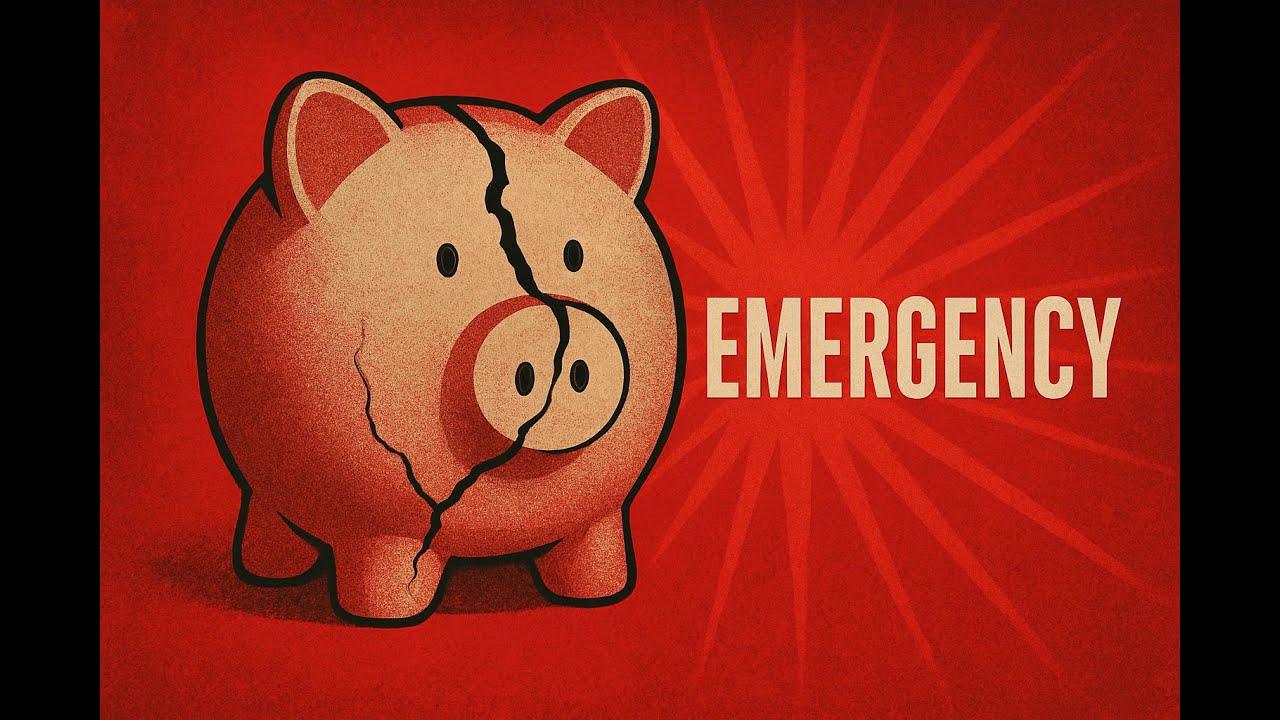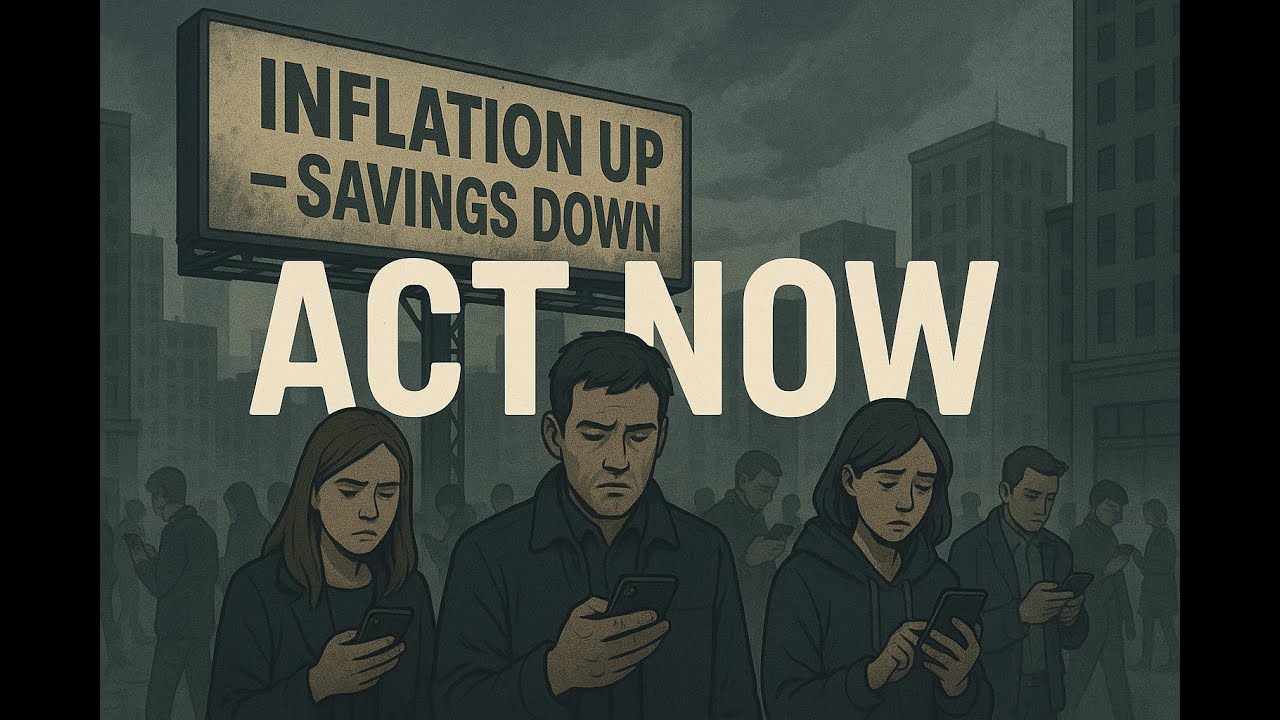Is Early Retirement Really Achievable? The Truth Behind Financial Independence
Explore the truth behind early retirement and financial independence. Understand the data, lifestyle trade-offs, and alternative paths to retiring early.
💡 Learn more: Check out our guide on The Debt Trap Most Beginners Fall Into for deeper insights.
Is Early Retirement Really Achievable? The Truth Behind Financial Independence
💡 Learn more: Check out our guide on The Power of Compound Interest: Why Your Future Shrinks Every Day You Delay for deeper insights.
Retiring in your twenties, thirties, or forties sounds like a dream come true—offering freedom from the daily grind, more time to enjoy life, and less financial stress. This vision has gained immense popularity through the Financial Independence, Retire Early (FIRE) movement, which has flourished across YouTube, Reddit, podcasts, and personal finance blogs. But how realistic is early retirement for the average person? This article explores the data, challenges, and nuances behind the promise of early financial freedom.
Table of Contents
-
[❓ Frequently Asked Questions (FAQ)](#❓-frequently-asked-questions-(faq)
📊 The Reality of Early Retirement Numbers
Despite the buzz, early retirement remains rare. According to data compiled by The Motley Fool, the percentage of Americans who retire early is surprisingly low:
-
Under 1% of people in their thirties are retired.
-
About 1-2% of those aged 40-44 have retired.
-
Between 6-11% of people in their early fifties have retired.
Most Americans retire around age 62, aligning with when Social Security benefits begin. Medicare eligibility, starting a few years later, also incentivizes waiting. For someone entering the workforce in their early twenties, this means roughly 40 years of work before retirement. This stark contrast between perception and reality raises the question: why does early retirement seem so common online?
🌐 Why Early Retirement Feels More Common Than It Is
The visibility of early retirees skews perception. Those who retire early and share their journeys through blogs, videos, and social media naturally gain more attention than the millions working traditional jobs until their sixties. The FIRE community also creates an echo chamber, attracting people passionate about frugality, investing, and minimalism. This environment amplifies the sense that early retirement is widespread, even though over half of Americans still live paycheck to paycheck and worry about meeting retirement goals.
💼 Redefining Retirement: Beyond the Classic Exit
The definition of retirement has evolved. Many who claim early retirement continue to earn income through freelancing, running businesses, or creating content. This "semi-retirement" offers greater control over time and reduced stress but blurs the line between working and not working.
For example, someone might leave their corporate job at 42, downsize expenses, and supplement income with part-time work like handyman services or teaching. This flexible approach to retirement is increasingly common and reflects a shift from retirement as a full stop to retirement as a step back from the traditional workforce.
📉 Trends and Challenges in Early Retirement
Interestingly, early retirement has become less common over the past 15 to 20 years, despite the FIRE movement's rise. Several factors contribute to this trend:
-
Longer life expectancy: Retirement now often spans 20 to 25 years or more, increasing the amount of savings needed.
-
Rising costs: Housing, healthcare, education, and everyday expenses have all increased, making it harder to save aggressively.
-
Low savings rates: Recent personal savings rates hover between 3-6%, far below the 20-50% typically required for early retirement.
-
Family financial support: Many parents provide significant financial help to adult children, sometimes at the expense of their own retirement plans.
-
"One more year" syndrome: Even when reaching financial milestones, many delay retirement by choosing to work an extra year repeatedly, growing their nest egg but postponing freedom.
🧠 The Emotional and Lifestyle Costs of Early Retirement
Early retirement demands substantial lifestyle changes and emotional trade-offs. Sacrificing current enjoyment—such as dining out, travel, hobbies, or new purchases—to save aggressively can be daunting. The mental hurdle of drastically altering spending habits and embracing long-term planning often feels overwhelming.
Many struggle with uncertainty about future expenses or fear unforeseen financial challenges. The question of how much sacrifice is worth the promise of freedom is deeply personal and lacks a universal answer. Achieving balance requires patience, reflection, and experience.
⚖️ Alternative Paths to Financial Independence
Not everyone chasing financial independence aims to quit work entirely. Variations like Lean FIRE (living frugally to retire early), Coast FIRE (saving aggressively early on and then coasting), and Barista FIRE (working part-time jobs for benefits while living frugally) provide more flexible approaches. These options often allow individuals to reduce work hours or change careers without completely stopping income, offering sustainable routes to greater freedom.
🔑 Key Takeaways
-
True early retirement is rare, with less than 2% of people in their forties retiring and under 1% in their thirties.
-
Visibility and online communities create a perception that early retirement is more common than it is.
-
Retirement today often means flexible or semi-retirement rather than a complete stop to work.
-
Longer life expectancies and rising living costs make early retirement more challenging.
-
Emotional and lifestyle sacrifices are significant and require careful consideration.
-
Alternative FIRE paths offer more balanced ways to achieve financial freedom without fully quitting work.
❓ Frequently Asked Questions (FAQ)
What percentage of people actually retire early?
Data shows under 1% of people in their thirties and about 1-2% in their forties retire early. Early retirement remains an exception rather than the norm.
Why is early retirement so popular online?
Early retirees often share their stories publicly, creating an impression that this lifestyle is widespread. Additionally, FIRE communities amplify interest and visibility, which may not reflect broader reality.
Does early retirement mean never working again?
Not necessarily. Many pursue semi-retirement, where they stop traditional full-time work but continue earning through part-time jobs, freelancing, or side businesses.
What challenges make early retirement difficult?
Longer life expectancy, rising living costs, low savings rates, and emotional hurdles around lifestyle changes all contribute to the difficulty of retiring early.
Are there alternatives to completely quitting work early?
Yes. Lean FIRE, Coast FIRE, and Barista FIRE are examples of approaches that focus on reducing work hours or expenses rather than full retirement.
🔚 Final Thoughts
Early retirement remains an inspiring but challenging goal. While the FIRE movement has brought attention to financial independence, the reality is that retiring in your twenties, thirties, or forties is uncommon and requires exceptional discipline, lifestyle sacrifices, and often unique advantages. For many, financial independence means more than walking away from a job—it means gaining freedom from debt, reducing stress, and having more choices in how to spend time. Whether retiring early or simply building a more secure financial future, the journey toward independence is a meaningful pursuit worth celebrating.
🚀 Ready to Build Real Wealth?
You've learned the strategy – now it's time for action!
🎬 Get Weekly Financial Education
Join thousands learning smart money strategies that actually work.
📺 Subscribe to @StartWithCents
💎 Download Your Free Wealth-Building Tools
Get the exclusive "First Dollar Game Plan" – your step-by-step guide to financial freedom.
📚 Continue Your Financial Journey
Explore more money-smart articles and strategies.
📖 Read More Posts • 🏠 Homepage
💡 Remember: Knowledge without action is just entertainment. Take one step today!

